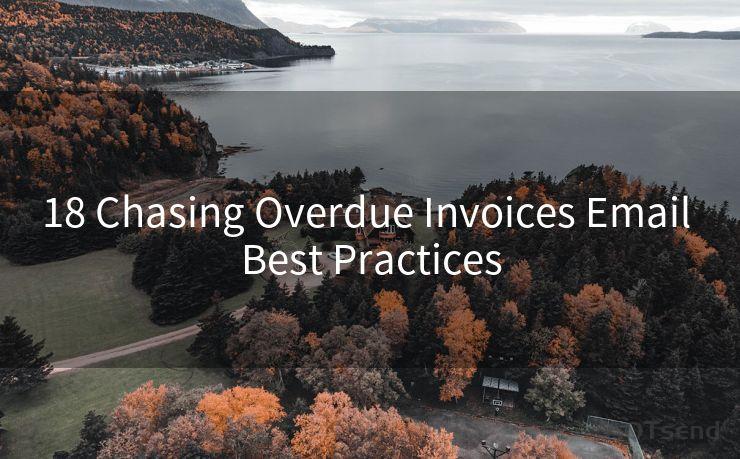18 Chasing Overdue Invoices Email Best Practices




1. Introduction
When it comes to chasing overdue invoices, effective communication is key. Email remains a powerful tool for reaching out to clients and ensuring timely payments. Here are 18 best practices for crafting emails that get results when pursuing late payments.

2. Clear and Professional Subject Line
Your email's subject line should be direct and to the point, clearly indicating the purpose of your message. For example, "Reminder: Invoice #[invoice number] Past Due Date" is both informative and professional.
3. Personalize the Message
Always address the client by name and use a friendly yet formal tone. Avoid generic templates that may appear impersonal and uncaring.
4. State the Purpose
Begin your email by clearly stating the reason for your message: the overdue invoice. Provide the invoice number, date, and amount due for easy reference.
5. Be Polite but Firm
Maintain a polite tone while firmly stating the importance of timely payment. Avoid aggression or passive-aggressive language that might alienate the client.
6. Include a Clear Call to Action
Your email should end with a clear call to action, such as a request for immediate payment or a response with a payment plan.
7. Attach a Copy of the Invoice
For convenience and clarity, attach a copy of the overdue invoice to the email. This serves as a quick reference for the client.
8. Offer Payment Options
Make it easy for clients to pay by providing multiple payment options, such as credit card, bank transfer, or online payment platforms.
9. Follow Up Regularly
If payment is not received after the initial email, follow up at regular intervals without being overly aggressive.
10. Maintain Professionalism
Keep your emails professional and avoid emotional or accusatory language. Focus on the facts and the need for resolution.
11. Use Templates Wisely
While templates can save time, customize them to fit each client's situation. Generic emails are less likely to be effective.
12. Check Your Grammar and Spelling
Ensure your emails are grammatically correct and spell-checked. Professionalism in communication is crucial when chasing payments.
13. Consider the Time Zone
When sending reminders, consider the client's time zone to ensure they receive the email during business hours.
14. Include Contact Information
Provide your contact information in case the client needs to discuss the invoice or payment arrangements.
15. Be Flexible with Payment Arrangements
If a client is facing financial difficulties, consider offering flexible payment plans or extensions.
16. Document Communication
Keep a record of all email communications related to overdue invoices for future reference.
17. Escalate as Needed
If emails are not yielding results, consider escalating the matter to a higher authority within the client's organization.
18. Use a Professional Email Signature
End your emails with a professional signature that includes your name, position, and contact details for added credibility.
By following these best practices, you can increase the likelihood of successfully chasing overdue invoices via email while maintaining a professional and effective communication style. Remember, persistence and politeness are key when pursuing payments.
🔔🔔🔔
【AOTsend Email API】:AOTsend is a Managed Email Service for sending transactional emails. Support Email Types: reminders, authentication, confirmations, notifications, verification codes, invoices, password resets, account activations, billing statements, two-factor authentication (2FA), and one-time passwords (OTP) emails, etc. $0.28 per 1000 Emails. 99% Delivery, 98% Inbox Rate.
You might be interested in:
Why did we start the AOTsend project, Brand Story?
What is a Managed Email API, How it Works?
Best 25+ Email Marketing Platforms (Authority,Keywords&Traffic Comparison)
Best 24+ Email Marketing Service (Price, Pros&Cons Comparison)
Email APIs vs SMTP: How they Works, Any Difference?




Scan the QR code to access on your mobile device.
Copyright notice: This article is published by AotSend. Reproduction requires attribution.
Article Link:https://www.mailwot.com/p6871.html



